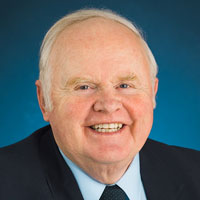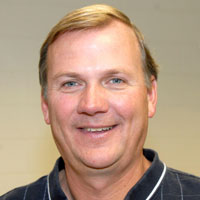One of the top educational conferences in the country, the Great Lakes Regional Dairy Conference is dedicated to helping dairy producers learn new ways of increasing their profitability by doing more with less. In its 11th year, the conference plans to deliver a high impact program. Leading experts will make presentations on topics ranging from labor management and community connections to calf nutrition and global issues concerning the dairy industry. Read below to see a sampling of the educational sessions.
In addition to the quality line-up of educational speakers, GLRDC will once again be the home base for the seventh annual Dairy Industry Recognition Night where it will honor the industry’s leading producers, recognize dairy scholarship winners and dairy judging team members, and announce the 2013 winners of the Michigan Dairy Ambassador Program.The GLRDC will be held Feb. 7-9 at the Bavarian Inn and Conference Center in Frankenmuth, Michigan. On-site registrations are subject to availability. Call (517) 353-3175 to make arrangements.
Progressive Dairyman recently reached out to several presenters and asked them to share a sneak peek of their upcoming presentations.

Dr. Dale Bauman
Liberty Hyde Bailey Professor Emeritus, Cornell University
Topic: Accepting Technology and Feeding the World
Q. Why is this topic important?
BAUMAN: Sustainability in food production depends in substantial part on the productivity of plant and animal agriculture.
The use of sustainable agriculture practices that maximize productivity is critical to balance present and future needs and this involves the adoption of technologies and management practices that allow for the production of food with more efficient use of resources and minimal environmental impact.
Q. What do you hope attendees take away from the presentation?
BAUMAN: Milk and dairy products play an important role in providing essential nutrients, health maintenance and the prevention of chronic diseases.
The adoption and application of technologies and management practices by the dairy industry has allowed for remarkable advancements in productivity (milk per cow) allowing a gallon of milk to be produced with fewer resource inputs, lower waste output, and a lower carbon footprint.
For the future, advances in productivity need to continue if we are to produce sufficient food for our global growth in population and the dairy industry will play an important role.
Overall, advances in the production of milk by more efficient and environmentally friendly methods, and the nutritional and health value of dairy foods represent a “good news story” for the dairy industry – one that we must to communicate to consumers and policy makers.

Dr. Mike Hutjens
Dairy Extension Specialist Emeritus, University of Illinois
and Greg Zuver
Dairy Nutritionist, Caledonia Farmers Elevator
Topic: Feeding Cows in 2012-2013: What Has Been Learned, What Are We Still Learning and How Do Dairy Farmers Move Forward?
Q. Why is this topic important?
HUTJENS: As feed costs remain high (especially forages), milk prices are declining, and carry over effects linger from the drought; dairy managers are making some "correct" and "incorrect" decisions that have short-term and long-term economic impacts.
Q. What do you hope attendees will take away from this presentation?
HUTJENS: Nine focus areas will be presented that may allow dairy managers to fine-tune feeding approaches or improve profitability on their dairy farms now and in the future.

Director of Nutritional Services,Land O’Lakes
Topic: The Latest in Calf Nutrition
Q. Why is this topic important?
EARLEYWINE: Calf morbidity and mortality is still a major issue on dairies. Often the underlying causes include a low level of nutrition with no adjustments made for weather.
Q. What do you hope attendees will take away from this presentation?
EARLEYWINE: Proper nutrition helps calves beat the stresses that hit them. Attendees will better understand that calves need to be fed more like their dam intended and the result will be healthier calves that produce more milk as cows. PD

Karen Lee
Editor
Progressive Dairyman magazine




